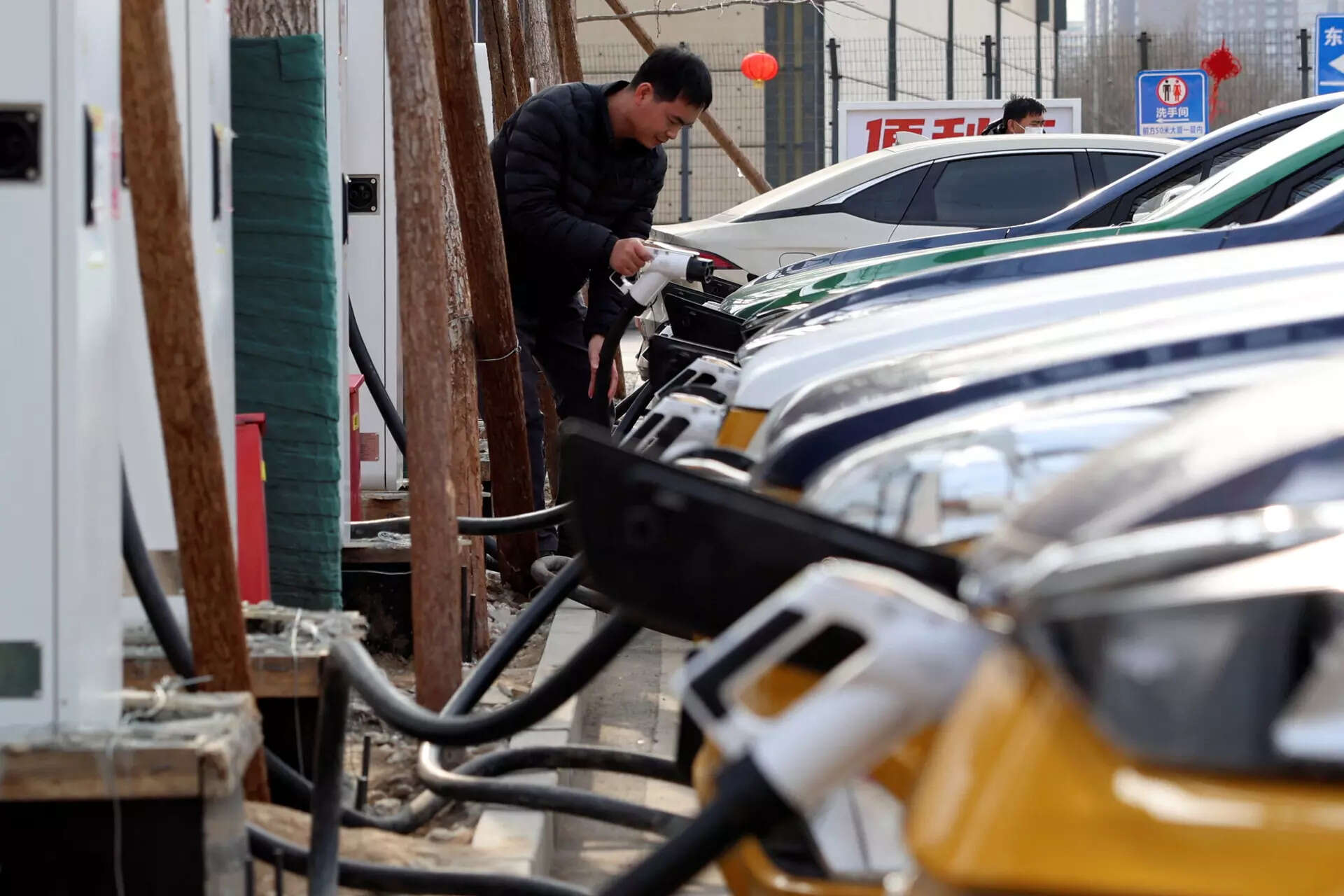
Bengaluru has emerged as the leader in the nation’s electric vehicle (EV) infrastructure, boasting the highest number of public EV charging stations in India. According to the latest report from the Bureau of Energy Efficiency, Karnataka has a total of 5,765 public charging stations, with Bengaluru Urban district alone accounting for 4,462 of these. This represents over 85% of the state’s total charging infrastructure.
The state’s extensive network places it ahead of other regions. Maharashtra follows with 3,728 stations, while Uttar Pradesh and elhi have 1,989 and 1,941 stations respectively. Karnataka’s lead is significant compared to Tamil Nadu, which has 1,413 stations, Kerala with 1,212, and Rajasthan with 1,129. Additionally, Karnataka surpasses Gujarat (992 stations), Telangana (956 stations), West Bengal (763 stations), Haryana (709 stations), and Andhra Pradesh (601 stations).
Energy Minister KJ George said, “Karnataka has set a new benchmark in the nation with 5,765 public electric vehicle charging stations. This underscores the state’s commitment to advancing electric mobility and reflects the strategic efforts to build a robust EV infrastructure and promote sustainable transportation.” Bangalore Electricity Supply Company Limited (BESCOM) Managing Director, Mahantesh Bilagi added, “BESCOM’s proactive initiatives and strategic planning have been instrumental in driving electric vehicle uptake and supporting the state’s transition to sustainable transportation.” There are further plans to invest Rs 35 crore in setting up 100 charging centers in collaboration with power supply companies.
Among other cities, Mumbai has 418 stations, Uttar Pradesh’s Agra has 81 stations, and Delhi’s West and South Delhi have 399 and 361 stations respectively. Chennai has 215 stations, and CBRE has 122 stations. Kerala’s Ernakulam and Thiruvananthapuram have 226 and 216 stations respectively, and Rajasthan’s Jaipur, Jodhpur, and Udaipur have 157, 96, and 76 stations respectively.
An expert said, “Public charging stations are crucial for the growth of electric vehicles because they provide the infrastructure needed to support widespread EV adoption. Accessible and reliable charging options are essential to alleviate range anxiety, ensure convenience for users, and encourage more people to make the transition to electric mobility.”|
On the other hand, Karnataka now ranks third in the country in terms of EV sales. The sales figures show a significant upward trend over the years. In 2022-23 a staggering 1,10,492 vehicles were sold, and in 2023-24, a remarkable 1,59,428 EVs were sold.
Comparing the sales from 2020-21 to 2023-24, there has been a significant increase of 1,275 times. Industry experts said that this exponential growth can be attributed to various factors. Initially, the sales of EVs faced a slow start due to skepticism regarding their durability and concerns about charging infrastructure. However, Karnataka took an early initiative by rolling out an EV policy, providing incentives, and increasing charging stations even in tier two cities and towns. These efforts significantly boosted consumer confidence and contributed to the surge in EV sales, exceeding 2.6 lakh units in the last two years alone.
An official said, “The rise in EV sales is a result of a synergistic approach involving policy incentives, cost-saving benefits over conventional fuels, environmental consciousness, and schemes like the Gruha Jyoti scheme offering free power. Transport officials predict a continued upward trajectory in EV registrations, with an annual increase from 11,000 EVs four years ago to an estimated 1.60 lakh EVs annually, indicating a promising future for electric mobility in Karnataka. The state currently boasts around 3.40 lakh EVs, predominantly comprising two-wheelers, signaling a significant shift towards sustainable transportation.”
Sources said that there is a demand for charging stations, especially in densely populated areas like HSR Layout, Malleswaram, Peenya, Hebbal, and Mahadevapura. Plans are underway to install numerous additional charging stations within the city catering to the convenience of EV users. Under the Public-Private Partnership (PPP) model, the state government intends to set up more than 1000 EV charging stations statewide, with a focus on highways. The aim is to ensure a charging station every 500 meters within BESCOM’s jurisdiction, aiming for completion before 2025. This initiative is expected to encourage more individuals to switch to EVs, considering their futuristic appeal and eco-friendly attributes.

